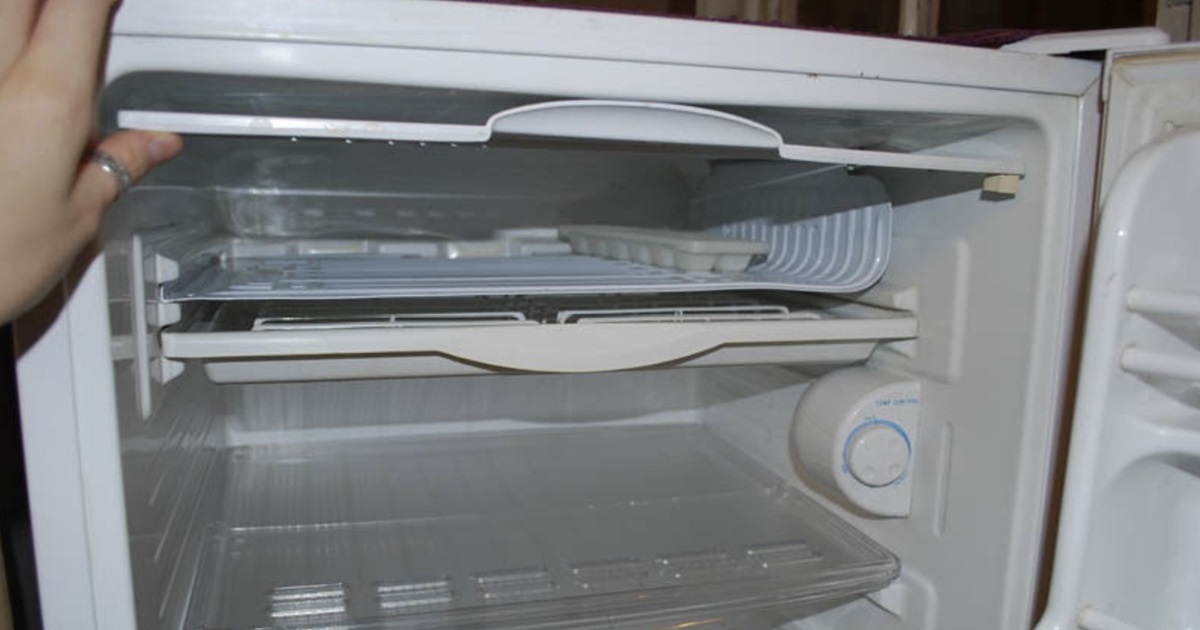Check This Detail in Your Freezer to Avoid High Monthly Bills!

source: Flickr
Alright, pull up a chair and let me tell you about this tiny, often overlooked detail in your freezer that could, believe it or not, double your electricity bills if ignored. I’m talking about the silent budget drainer in our kitchens – the freezer and, by extension, our trusty refrigerators.
Once upon a time, I was blissfully unaware of the creeping ice menace lurking in my freezer. It was just another storage space, albeit a bit chillier. Then came the fateful day when my electricity bill arrived, and it looked like it had been hit with a dose of steroids. After recovering from the initial shock and doing a bit of sleuthing, the culprit was found: my heavily iced-over freezer.

Here’s the scoop: when your freezer looks like it could be part of an Arctic expedition, it’s not just a sign of a well-used appliance; it’s a red flag. A thick layer of ice means the freezer is working overtime to maintain its temperature. The more ice buildup, the harder its components have to work. This not only strains your appliance but can hike up your electricity bills by up to 30%. Yep, you heard that right.
But wait, there’s more. It’s not just about defrosting that icy build-up. To truly optimize your fridge’s performance and keep those bills in check, a couple more steps are crucial.
Firstly, let’s talk about those rubber gaskets on your refrigerator doors. They ensure your fridge remains airtight, preventing cool air from escaping. Over time, they can collect grime, weakening their seal. Once I took a closer look at mine, I was greeted with a scene reminiscent of a science experiment gone wrong. Cleaning them was a revelation. Suddenly, the fridge door had that satisfying, firm close again, just like when it was new.

Then, there’s the condenser – the hardworking component located at the back of your fridge. It was only after moving my refrigerator to retrieve a stray potato that I discovered a fluffy coating of dust on the condenser coils, choking the very life out of it. Cleaning those coils felt like I was giving my fridge a new lease on life. It ran smoother and quieter, and yes, it had an impact on my next electricity bill.
Adjusting the temperature of the refrigerator and freezer according to the season is another nifty trick. In the colder months, your fridge doesn’t need to work as hard, so tweaking the settings can save energy. In summer, it’s a delicate balance to prevent it from overworking. I once set mine too low in a heatwave, thinking I was doing it a favor. Spoiler alert: I wasn’t. The fridge worked itself into a frenzy, and the electricity bill mirrored its effort.

So, how do these changes reflect on your electricity bill? Well, after all the tasks I performed, including defrosting, cleaning gaskets, dusting the condenser coils, and adjusting temperatures with the seasons, I saw a noticeable decrease in my energy consumption. My refrigerator was no longer the silent budget drainer I had unwittingly tolerated. I realized how important regular maintenance is.
The moral of the story? Never underestimate the impact of a well-maintained freezer and refrigerator. It’s easy to overlook these routine maintenance tasks when life gets busy. However, taking the time to defrost, clean, and adjust can not only extend the life of your appliance but also save you a significant chunk of change in electricity bills. It’s a small effort for a reward that’s not just about savings but also about taking a step towards a more sustainable lifestyle. Now, I’m going to tell all of this to my family and friends! They are missing out on a lot.

All this frozen-over freezer was a wake-up call. It highlighted how seemingly minor oversights could lead to bigger issues down the line. My advice is, the next time you’re fetching something from your freezer, take a moment to check for ice buildup. It might just be the perfect time to defrost and give your refrigerator a little TLC. Seriously, where have I been before, and why was I paying so much? I guess no more shocks when the bills come.